You’re in a War You Can’t See: McLuhan, Media, and the Machinery of Perception
What Marshall McLuhan saw coming, and why you must learn to see it too before you get reprogrammed.
If you’re a subscriber to The Whirl of Reorientation, we already know you’re not playing games.
You operate in a contested battlespace, where perception, attention, and cognition are key. Some call it narrative warfare. Others call it psyops. McLuhan saw it for what it is: environmental reprogramming at the sensory level.
To fight in 5GW, maneuver in narrative space, shape orientation, or detect distortion, you need to understand Marshall McLuhan.
Not casually. Not as a name you drop. You need to study him. Because McLuhan didn’t just describe the media environment. He decoded the invisible architecture behind every screen, every symbol, every tool.
What follows is a short primer. Not a summary. A signal flare. These five quotes are starting points, not conclusions. Each one cracks open a different layer of the terrain we live and fight in.
“The medium is the message.”
This is the one they all quote and misunderstand.1
McLuhan’s insight is brutally simple: the content of a message matters far less than the form it arrives in. Television isn’t just a way to tell stories; it alters our expectations of truth. The internet isn’t just faster communication; it’s a new environment where memory, identity, and consensus are rewritten in real-time.
You can’t just analyze content. You must analyze the container.
That’s terrain work. And if you don’t see the terrain, you’re already disoriented.
“All media work us over completely.”
This is another important McLuhan idea.2
He never believed we “use” media. He knew media use us.
Every new medium rewires the body. It numbs some senses and heightens others. The radio made us tribal. Television made us passive. The smartphone turns us into fragmented actors in a perpetual now.
To extend ourselves through tech, we amputate parts of ourselves.
That’s not dystopian. It’s tactical. And the side that sees that first wins faster.
“World War III is a guerrilla information war with no division between military and civilian participation.”
You have no doubt memorized this quote by now.3 We use it a lot, and will continue to do so.
No one is neutral now.
Not you. Not your kids. Not your audience. Not your adversary.
McLuhan wrote this before the advent of X, YouTube, smartphones, or livestreams. But he already saw the shape of it. Today, every repost, every comment, every swipe is part of a battle for control of orientation.
In this war, civilians don’t watch; they transmit. The front line isn’t out there. It’s your timeline. Your inbox. Your face.
If you want to win, you need to see what makes the war invisible.
“The global village is a place of very arduous interfaces and very abrasive situations.”
Don’t let the phrase “global village” fool you.4
McLuhan didn’t mean utopia. He suggested a tribalized, overheated proximity machine where everyone feels everything too fast, too often. No silence. No distance. No cooling-off period. It’s one long, unfiltered group chat with the volume maxed out.
Sound familiar?
That’s the emotional structure of the media environment now. And unless you train to spot it, you’ll confuse the signal with a threat, or worse, with the truth.
“A point of view can be a dangerous luxury when substituted for insight and understanding.”
This quote is where the knives come out.5
Everyone has a point of view. However, in a 5GW environment, a point of view becomes a liability if it’s not grounded in a perception discipline. The more you identify with your take, the less likely you are to see.
McLuhan isn’t telling you not to believe anything. He’s telling you to stop clinging. The world is moving. The ground shifts. If you mistake your perspective for the map, you’ll miss the turn.
In orientation warfare, insight always beats opinion.
Read McLuhan. Study McLuhan. Deploy McLuhan.
McLuhan’s not outdated. He’s under-read.
He isn’t just for academics or media theorists. He’s doctrine for perceptual combat. He gives you the language to map your environment—before it overwhelms you.
He’s not the final word on narrative war. But he’s the starting structure. If you want to move like John Boyd and strike like 5T, you need to see the medium before the message.
McLuhan doesn’t teach you what to think.
He teaches you how the environment thinks for you.
Start here:
📘 Read: Understanding Media – the foundational theory.
📙 Read: The Medium Is the Massage – visual, fast, devastating.
🎥 Watch: This Is Marshall McLuhan: The Medium Is the Massage (1967) – free on YouTube. Required viewing.
Watch it here:
To thrive in 5GW, start there!
The Medium Is the Massage, McLuhan & Fiore, Gingko Press, 2001.
Ibid.
War and Peace in the Global Village, McLuhan & Fiore, Bantam, 1968.
This quote is from a McLuhan Interview with Mike McManus, TV Ontario, 1977. Thanks to
! Follow Andrew at and be sure to check out our episode with him on No Way Out.The Gutenberg Galaxy: The Making of Typographic Man, McLuhan, 1962.





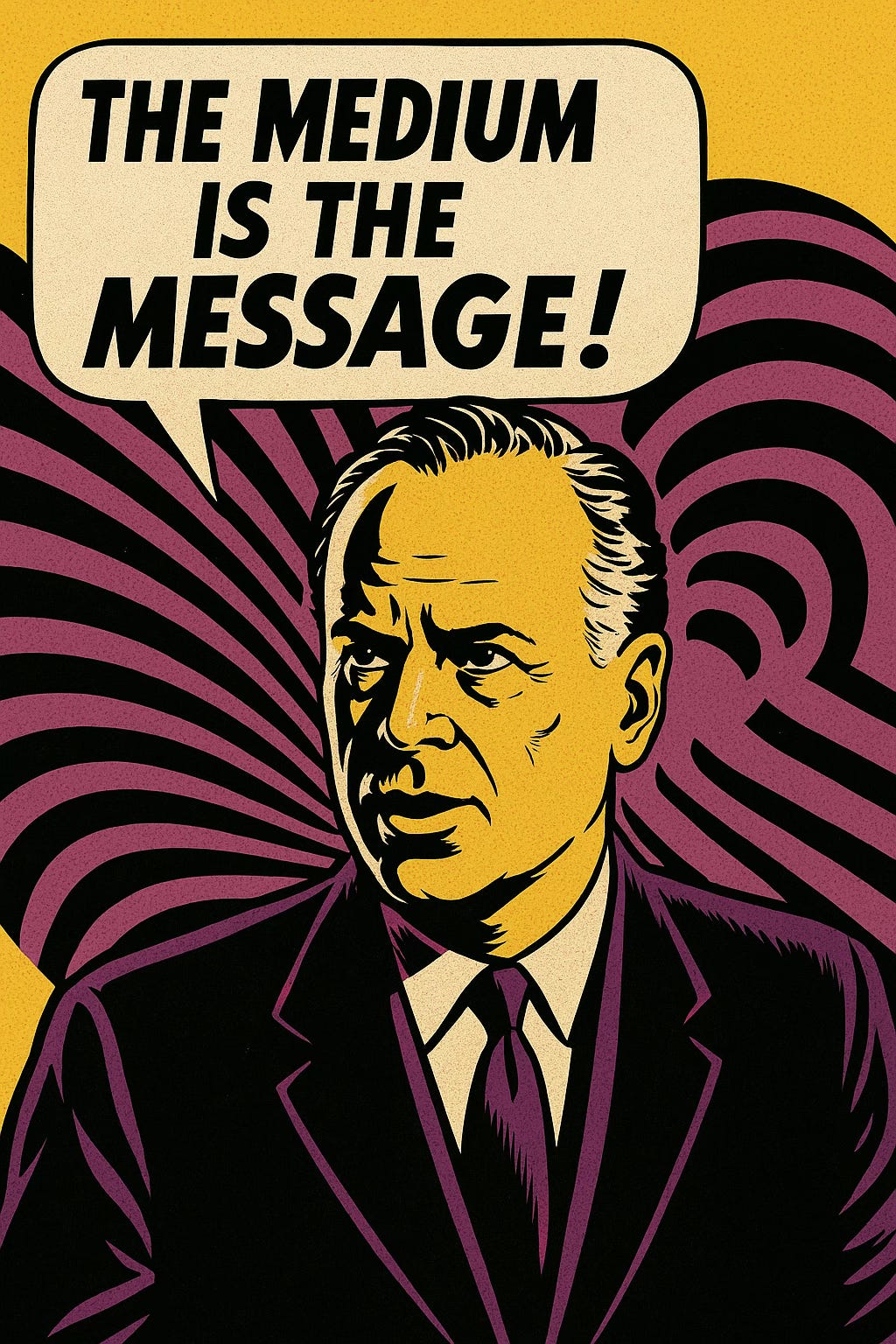
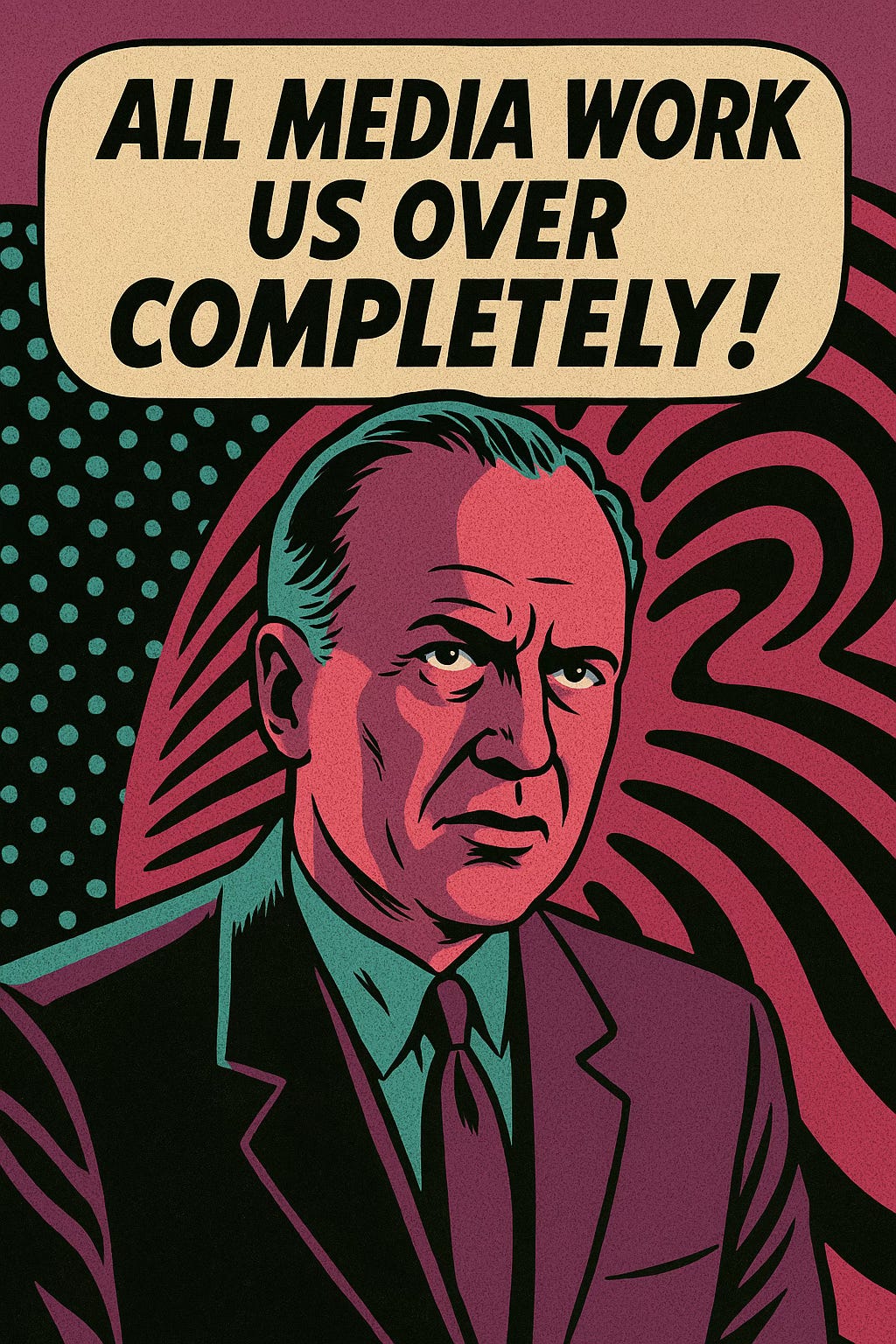
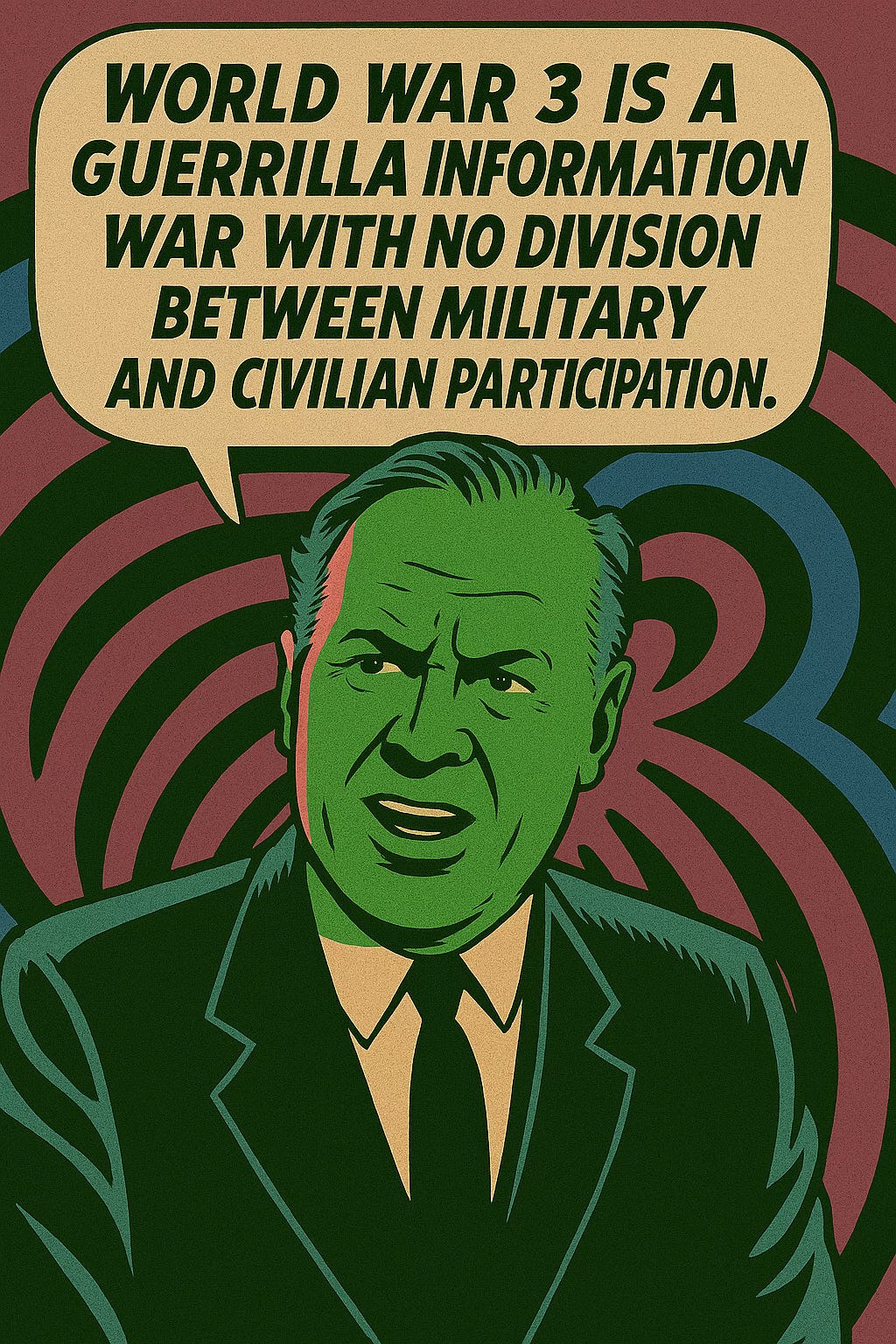
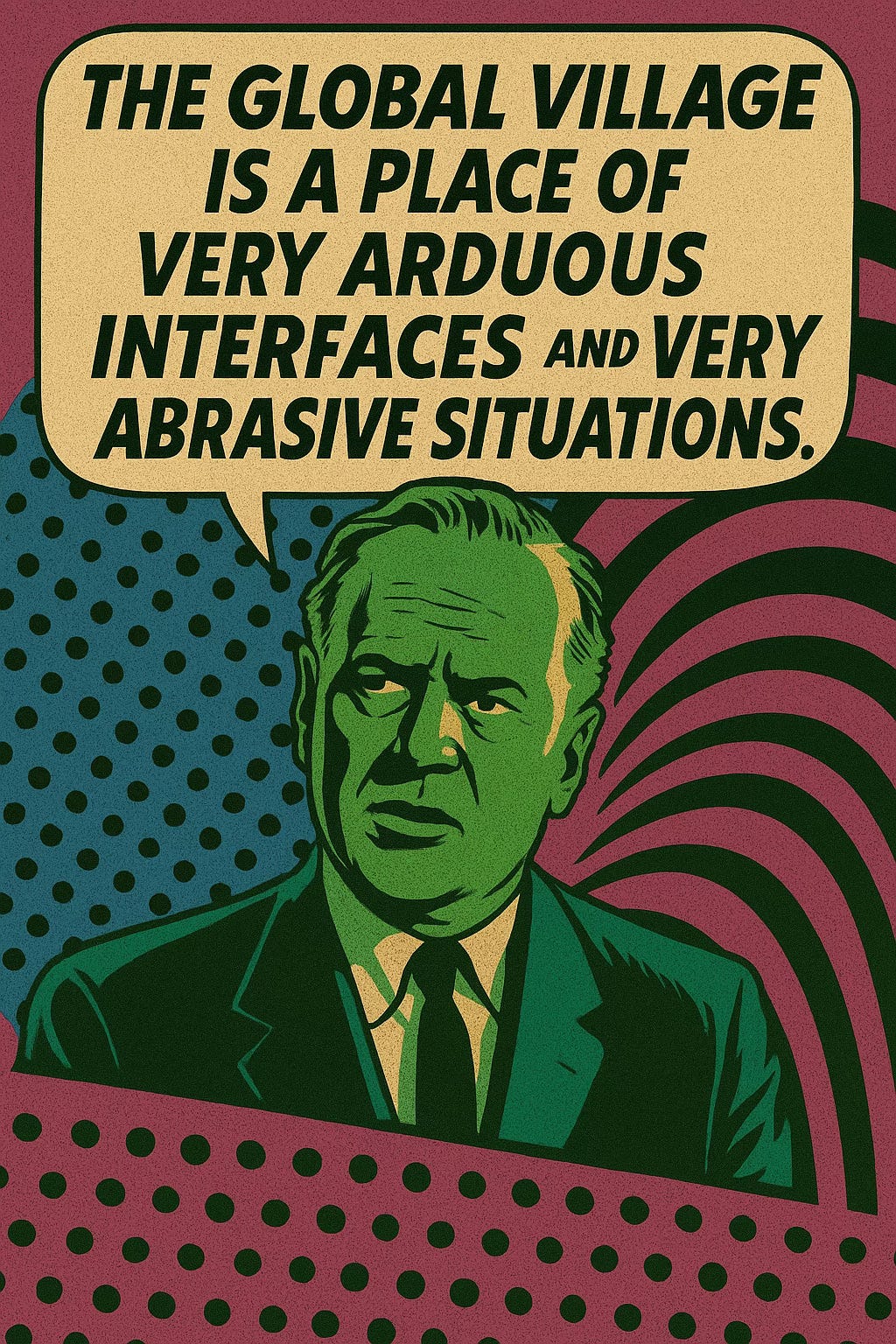
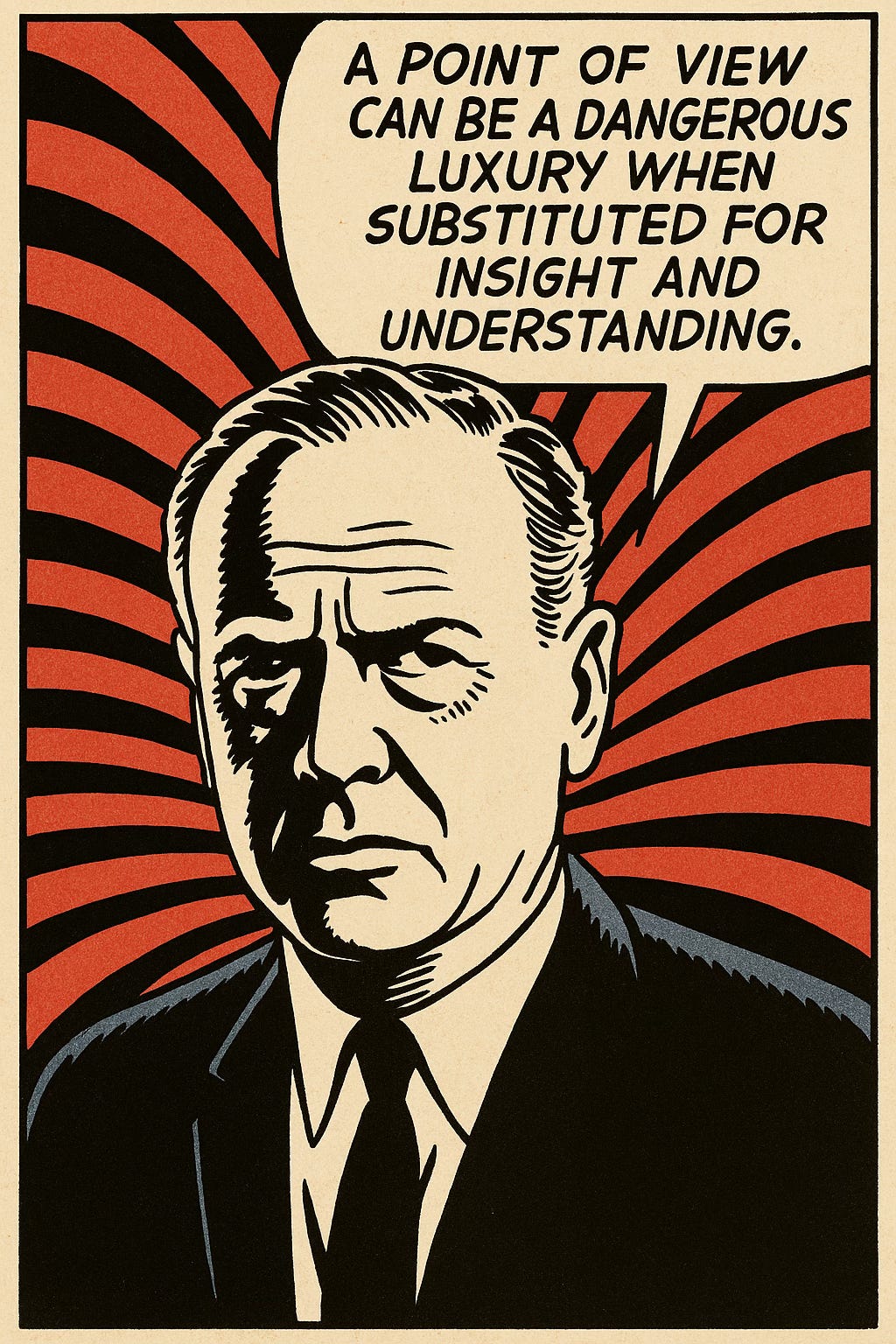
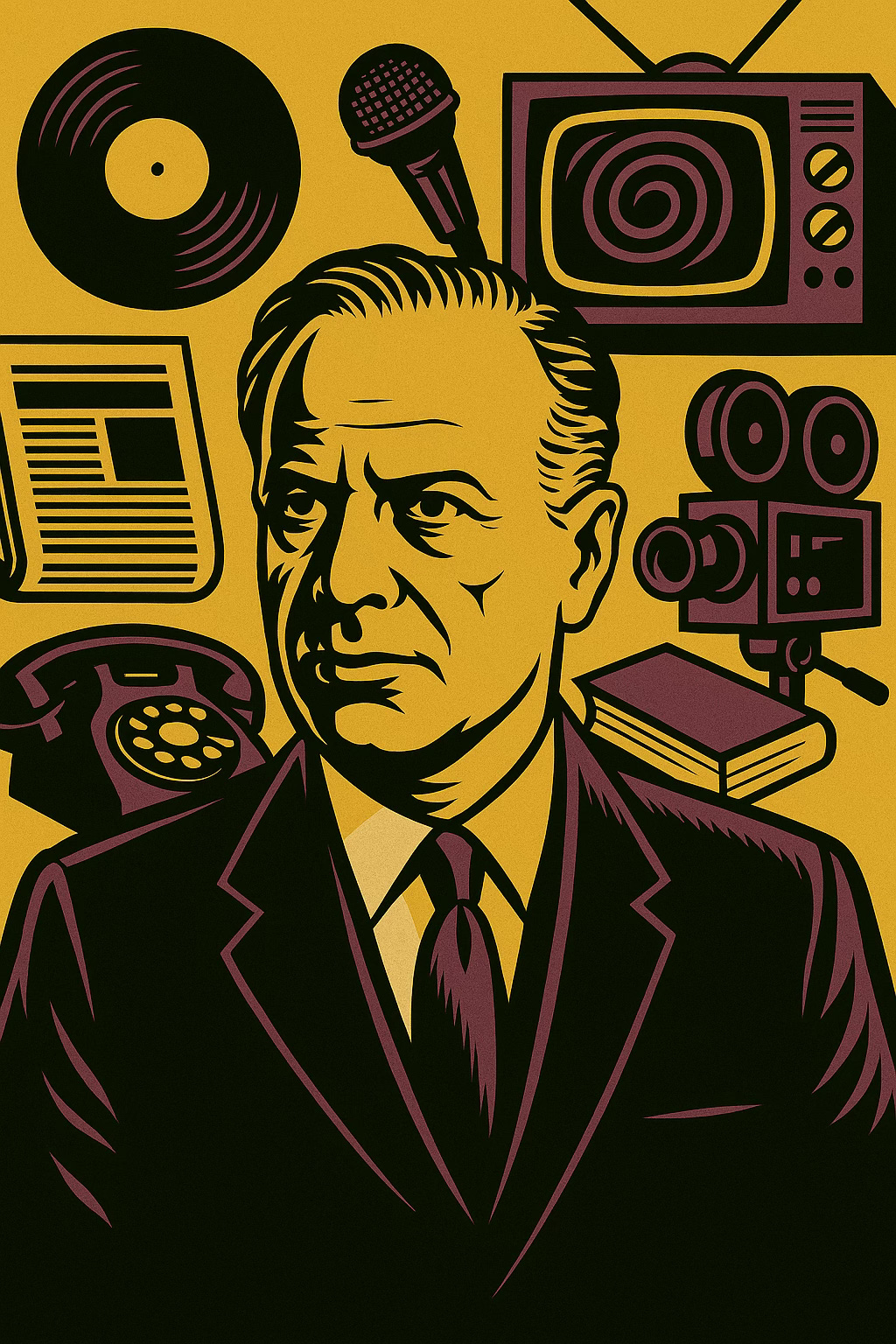
These are hard truths and entry points. But critical.
"A point of view can be a dangerous luxury when substituted for insight and understanding."
An ongoing conversation I am having on Substack is that the obsession with generations--the Greatest, Silent, Boomers, etc.--is dangerous and counterproductive. Blaming a past generation for one's lack of success or opportunity today is futile. Every generation has its heroes and cowards, Machiavellians and useful idiots, etc. More importantly, past actors have ZERO agency with how I act today.
I haven't crossed over to conspiracy territory yet, but it's hard not to shake the notion that this generational blame shifting and labeling is intended to divide. As a boomer, over the hundreds (thousands?) of late night discussions with my friends in college, we never talked about being boomers--it wasn't even in the lexicon. Oh, yes, we thought our parents were clueless, but we were young and arrogant. But today, I can't believe how many adults are obsessed with their generation or another being slackers or selfish or whatever.
In short, it's a POV that is a luxury, it's shorthand for thinking emotionally rather than critically, and it's dangerous. Thank you, Marshall McLuhan (via Mark McGrath).